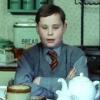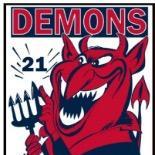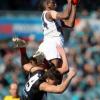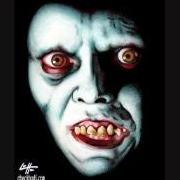Leaderboard
Popular Content
Showing content with the highest reputation on 03/01/12 in all areas
-
Round 1 2005. Sitting behind Punt Rd end goals with my family. I remember the very moving tribute to Troy before the game, with all players honouring his memory. And at the end, after dispatching the Bombers, them team were called together by skipper Neitz and walked as one off the MCG, arms around each others shoulders. We had 19 players on the ground at all times that game. Troy played that game in spirit - and he was BOG.2 points
-
2011: THE YEAR THAT WAS by Whispering Jack Melbourne fans have experienced some tough times since the 50s and 60s and the year now ending will not be remembered fondly by them. In many ways, 2011 was among the most frustrating experienced by those of us who have suffered for so long waiting for the glory of days past to return. Like many before it, season 2011 began amid promise and the expectation of improvement but ended delivering little other than disappointment, although there was a twist in the tail of the season's aftermath that might just deliver some hope for the future. The year was dominated by one issue which CEO Cameron Schwab described as a "black cloud" over the club. Would former number one draft selection Tom Scully take the money and run off to the Greater Western Sydney franchise which was due to open its doors for business in 2012 under veteran coach Kevin Sheedy and heavily funded by the AFL? The rumour mill was buzzing as early as February to the effect that the Giants had already snared the young Demon midfielder for huge coin amid speculation that the AFL was deeply involved and had smoothed the way for the recruiting coup to happen once the season was over. Scully was coaxed into appearing at a press conference in early March at which he gave an assurance that nothing had been decided; he would make up his mind about his future at the end of the season. He said he was not even aware of the extent of any offers that might have made for his services and he maintained the line almost until the moment when he and his family caught a flight to have a look around Sydney on a Sunday morning in early September. The sight of the harbour bridge from a jet circling high above was apparently enough to swing the deal. By mid-afternoon on the same day, he was not only a Giant but spruiking his devotion for the nascent football club. Back in the early days of the saga, Melbourne's ever insightful chairman Jim Stynes was critical of a system that encouraged young players to tell lies to their clubs. This alone should have been enough to arouse suspicions about the club's young midfielder. In any event, Scully's "assurances" did nothing to deter the almost daily speculation over his future until it undoubtedly became a major distraction for the club. Eddie McGuire was adamant on his radio programme before the first ball was bounced in anger saying he knew for a fact that the youngster was on his way north. By mid year, most commentators believed this to be the case. Demon champion David Schwarz announced to his television and radio audiences that he was "98% sure" that Scully had jumped ship and that the evidence at his disposal was compelling. Later revelations including bizarre reports of a job offer made by GWS to Scully's father as early as November, 2010 confirmed in our minds that the lad was indeed, pulling our collective legs all the while. And though most did not begrudge him the money, the apparent deception to the club, his teammates and fans left a bad taste in the mouth. The loss of a promising young player is always a bitter pill to swallow but the fact that many considered two draft picks in the middle of the first round inadequate compensation for a number one selection coupled with Kevin Sheedy's gloating and AFL CEO Andrew Demetriou's compliments to GWS over the coup did nothing to douse suspicions of AFL complicity in a deal many consider to be nothing short of scandalous. The Scully saga was big enough to overshadow the departure of Dean Bailey and the background story of internal rumblings over the position of the CEO even as Melbourne's season unravelled in the wake of a mammoth 186 point defeat at the hands of Geelong at Skilled Stadium on 30 July - a date that might yet assume major significance in the club's history but more of that later. Melbourne faced 2011 with one of the competition's youngest lists following the retirement of James McDonald and the departures of Cameron Bruce and Brad Miller. In the absence of the former, Brad Green whose form in 2010 was close to his best ever, took the captaincy. Despite the youth of the playing list, things began well enough for the club when it successfully negotiated the novelty of two half games in Adelaide for the NAB Cup opening in February. However, something appeared to be amiss when the team played poorly and was overwhelmed for strength in its remaining pre season matches. Still, that was regarded as part of the preliminaries, not to be taken quite seriously, particularly with many good players like All Australian James Frawley, Jordie McKenzie, Scully and others sidelined during the preseason with injuries. The opening game against the Swans was a corker ending in a draw. That was followed by a shocker of a second half against the Hawks when the team was simply overpowered. Then came a close call against the Brisbane Lions which provided the relief of four points at last. A trip north saw the team easily shrug off the new boys on the Gold Coast by 15 goals and things seemed back on track. As often happens, a trip to parts west of the Victorian state border, this time for a clash against the Eagles, was what exposed the team's weakness against exponents of the hard press and confirmed our worst fears from the Hawthorn loss. The reigning wooden spooners simply smashed their visitors whose poor skills and lack of application were visible everywhere on the field. There was nowhere for the Demons to hide. A week later and back at home, Melbourne turned on another Dr Jekyll and Mr Hyde performance when it crushed Adelaide by a record 16 goals but it turned out to be a disastrous weekend with two players, Jack Grimes and Jake Spencer (in the VFL) lost for the season, All Australian ruckman Mark Jamar out for several weeks and, as if that wasn't enough, Jack Trengove was outed for three weeks over a controversial sling tackle on Adelaide's Patrick Dangerfield whose concussion from the incident was not enough to stop him from playing and kicking five goals a matter of only six days later. Melbourne was in a spot of bother. The injury toll kept rising in the coming weeks with the losses of Aaron Davey, Colin Garland and Rohan Bail coming in quick succession as an unsettled team lost to North Melbourne (after holding an early six goal lead) and St. Kilda before its humiliation in the "bruise free" game on a late May Friday night against Carlton. The club's entire season was in danger of being derailed. There were few shining lights in all of this. Brent Moloney was a stand out, particularly after losing his place in the leadership group after an alcohol fuelled night of celebration. Stefan Martin was having a break out season, showing great improvement and manfully filling the void left by the injury toll to the ruck division. Jack Watts was starting to demonstrate some of the promise that made him a number one draft pick and Luke Tapscott was impressive in his debut season but he too succumbed to a bad hamstring injury. On the debit side, many were down on form and confidence including skipper Green on whose shoulders the responsibility of leadership weighed heavily. A great deal of soul searching and an infusion of young players into the midfield saw a turnaround against the Bombers in a game where Trengove, Watts, McKenzie, Jordan Gysberts and Scully, returning from a knee injury for his maiden game of the season, were among their team's best and rookie Dan Nicholson also showed glimpses of promise for the future. The win was the first of three out of four in a midseason patch that returned the club to the top eight. That one defeat was an 88-point smashing at the hands of Collingwood on Queens Birthday, courtesy mainly of a pathetic final quarter but this was blotted out of the memory banks six days later when an undermanned Fremantle capitulated by a single point short of 15 goals. The club's season was taking the trajectory of a roller coaster as the team notched up big wins against lowly opponents but when they met the stronger sides that applied the hard press, they were simply no match. The excuse that it had one of the youngest lists in the competition, that it was tired after four consecutive six day breaks and that there were injuries rang hollow in the face of an insipid performance against the struggling Bulldogs in the Friday night game on the first of July at Etihad. It was to be the start of an horrific month for the club with many questioning the direction of the coaching and whether the team was up to the rigours of the modern game. Suddenly, it was more than just the inability to shake off the bruise free tag - it was a combination of many things that were necessary to be able to compete with the best exponents of the modern game. Skills, fitness, strength, leadership, the ability to pressure opponents, win the hard ball and execute what for want of a better word is often described as a game plan. That is not to say that there was no game plan but rather that it was too complex and precise for this young side and it just didn't work against the bigger, stronger teams in the competition. A bye and an unconvincing win in steamy Darwin over lowly Port Adelaide offered only brief respite. Tellingly, Scully limped off late in that game with what we were told was a recurrence of his knee problem. With one or two exceptions, his ten games for the club in 2011 were quite underwhelming and seemingly devoid of true commitment to the cause. The Demons now had the task of winning three of their final seven matches to make the finals. The last three of those games were eminently winnable and the team's competitors for a berth in the top eight were floundering. They might have been a chance but unfortunately, the effort within the team was not there. In the month to follow, they would have the stuffing knocked out of them. A few days after the Port Adelaide game a brief item appeared in the Herald Sun announcing Collingwood assistant coach Mark Neeld as the favourite with punters to be Melbourne's next coach. The item passed virtually unnoticed but events over the next week or two would give the piece greater significance although its effect would only become evident somewhat further down the track. The following game saw the Hawks inflict a nine goal thrashing against a jaded Demon team that appeared not to have recovered from its trip to the tropics. Then followed a week of questioning and probing. Skipper Green was clearly under pressure when interviewed on television. The media pack was circling. Something was wrong at the club. On the second last day of July, the morning press carried a story on the woes besetting the Melbourne Football Club. A confusing scenario was presented involving player unrest, the prospect of Dean Bailey's reappointment for another year and the imminent sacking of CEO Cameron Schwab. If none of that made sense then the several hours of football that were to follow beggared disbelief. In the curtain raiser, the lowly Cats' reserves thrashed club's VFL affiliate, the Casey Scorpions, a top four contender, by 128 points. Worse was to come when a listless Melbourne outfit barely raised a whimper on its way to the second biggest losing margin in the 115 years of the competition's history. Bailey was sacked the following night. The Board handled the sacking poorly delivering the news by telephone rather than in person. At the ensuing press conference, Bailey was gracious. He dropped the gentlest of hints about fulfilling a brief to aid the club's development that most consider to be synonymous with tanking but that went nowhere because, according to the AFL's official version, the practice does not exist. Todd Viney was appointed interim coach for the rest of the season but it was effectively all over for the Demons. Like a ship foundering on the rocks, the team crashed out for the rest of its year and it barely managed to scrape a home win against the eventual wooden spooner Gold Coast. The final kick in the teeth was delivered at the Adelaide Oval in Round 24 when lowly Port Adelaide, aided and abetted by some bewildering umpiring decisions, broke their own horror run of outs against the hapless Demons who finished the year in 13th place. A few weeks later Brent Moloney won the club championship on a night when the club faithful were introduced to their new coach Mark Neeld. An ailing Jim Stynes surprised with his attendance and inspirational words and therein lay the tale of how the club went a long way to erasing the deep wounds that had cut into it during the latter third of the season. Much of the credit for that could be taken by a man who was unable to attend the best and fairest night due to work commitments at the MCG on Preliminary Final Night. Club legend Jim Stynes was diagnosed with cancer in July, 2009 and has demonstrated enormous resolve and resilience as he battled the disease. That comes as no surprise to those who were fortunate to witness his stellar career which included a then club record of games, a competition record of 244 in succession, a Brownlow Medal and multiple best and fairests - resilience became his middle name and the theme for the way in which he lifted his club out of the mire of debt and returned it to a respectable position in the eyes of the AFL, the MCC and indeed the football community. Despite his illness, he has held on to his position and thanks to the help of his able lieutenants, the club continued to thrive with growing sponsorships, connections to new partnerships including the Chinese market. However, all that was placed at risk with the events of late July 2011. The club had no football director and Stynes had different battles to fight. He sought and gained the support (albeit initially reluctantly) of friend and former teammate and club captain Garry Lyon who was deeply entrenched in his media role. There were critics who scoffed at Lyon's acceptance of the temporary position at the club akin to that of the football director but the former Demon key position player grasped the role, virtually moved into his friend's skin and started to work a minor miracle at the club. The main thrust had to be the reorganisation of the football department and appointment of a new coach but he was also there to impart some stability. Personnel were moved from here to there, others moved out and new appointments were made with a minimum of leakage of information that was once commonplace at the club. The result is there to see and awaits only the imprimatur of on field performance and success. A new coach in Neeld and a bevy of assistants including Neil Craig, leading football fitness and conditioning man David Misson and players recruited for a purpose - to put bigger and stronger bodies on the field. Mitch Clark was the club's first big trading coup in a decade. An interesting mix of players was drafted to the club in November and December. The intensity of a hard, tough pre season was also there to be seen. The black cloud is gone and is not missed at all. The dark days of July/August are gone and there is a feeling that the still young but stronger in body and mind Demons are going to be a lot harder to beat in 2012 and beyond.1 point
-
1 point
-
1 point
-
1 point
-
ORANGE AND CHARCOAL - Recollections and tales of a tragic football club Preface The Second Global Financial Crisis which began in 2013 wiped out six European countries, Venezuela, the Ivory Coast, a handful of Arab oil sheikdoms and most of Russia's oligarchs. It brought an end to the Internet, lifestyle television programming and Zumba. Among its victims in Australia was the national icon Vegemite which went out of production after 91 years, the Big Bash League and nine AFL clubs including two recently formed franchises which were placed into liquidation when the much vaunted television rights deal collapsed. Several members of the AFL hierarchy resigned and went into hiding amid rumoured sightings in various parts of the world of the former league CEO who had been on the run since the infamous "Pendlebury" incident. The surviving AFL clubs - those fortunate enough to be debt free when GFC2 hit - completed the season and thrived in the boom years that were to follow but the Greater Western Sydney Giants sank into oblivion. At the Rooty Hill RSL where a wake was held for the now defunct Giants, ten of the club's staunchest supporters attended to mourn the passing of the competition's least successful team which survived to make only 39 appearances for no wins in a brief history wracked with scandal and controversy. Only one former player was in attendance but this was merely a coincidence on account of the fact that he now found employment as a food waiter at the RSL club. The function's organisers had catered for 200 guests so they were grateful for the attendance of the Giants' former interstate recruiting scout who single-handedly managed to polish off the lavish spread of finger foods, prawns, cold meats and several banana fritters for dessert before attacking the other more substantial foodstuff on offer in the club's lounge area. At one stage during proceedings, Snowy O'Toole, a diehard fan stood up. It was said that Snowy, a helicopter pilot during the Vietnam War, was an addict who got high from sniffing avgas but he was much loved by the Giant faithful and he hardly missed a single game, home or away. Now he rose to exclaim at the top of his voice, "Let's sing the club song once more for old time's sake!" The remaining faithful looked at him, heads swaying in a downcast manner. None of them knew the words or the tune, not even Snowy, so they drank a toast to the bloke whose name nobody could recall but who coached the team through seven rounds of the first season before the sackings took place. Then they sat around tearfully exchanging stories of the past including that glorious day in 2012 when their boys outscored Port Adelaide in the third quarter of their round 19 fixture at Skoda Stadium. They were the real supporters of the GWS Giants and the fact that at least four of these loyal and true men and women reside today at the pleasure of the NSW prisons and corrective services department has not deterred me from dedicating this volume to them. Now proceed to Chapter 1 on post # 1512 above.1 point
-
Shame somebody didn't at least go nuts and biff a few players during the 186 debacle. Knowing our luck that day they'd have accidentally punched themselves in the head.1 point
-
That's the whole idea bj ! I don't want to be taken too seriously . It's just opinions after all , with the odd factual account . We all like to get our points across in different ways . The best posts in my opinion are the ones which have a "serious" element about them laced with a bit of humour . As for Kramer , he's fairly cluey in his own way , is quite popular with the ladies , never needs money , never works , has some wild and wacky ideas - some of which have worked in real life ( The Beach ! ) All in all a very good role model !1 point
-
Reviving the rivalry would be a fairly good idea if there wasn't 31 goals difference between the two sides . More like a revelry for the cats .1 point
-
I wrote this tribute to Troy after his funeral and though time continues to march on, I don't think I can sum up my feelings about him any better than this:- OUT OF THE SHADOWS - A TRIBUTE TO BROADY by Whispering Jack It's early morning and a honeymoon couple strolls along the beach. The wind stops. The waters thud over the shoreline and, in an instant, the waves cast giant shadows on the sand as it suddenly disappears below them. The tiny droplet of time left is barely enough for him to guide her to the relative safety of a balcony before the tide turns again. The roar of the ocean has become a shrill scream that echoes across the Bay of Bengal and beyond leaving tragedy and death in its wake. He is one of the many who are lost to us forever … Troy and Trisha Broadbridge were on their honeymoon in the Thai resort of Phi Phi Island when the Indian Ocean tsunami struck on Boxing Day 2004. A little over a week earlier they were married and a few days before that Troy had wound up an intensive pre-season training period with his teammates at the Melbourne Football Club. He had just completed his best season since coming to club as a rookie-listed player in 1999. After six years as a Demon, Troy's career and his life were just starting to take shape. A little over a month after the wedding Trish is repeating the vows she declared on their wedding day. As the mourners stand teary eyed in the shadows of a packed St James' Catholic Church in Gardenvale she recites them softly. "Troy, you are my best friend. I promise I'm going to love you no matter what happens, I will always stand by you like you have stood by me. I love you so much because of everything you've done for me, for the person that you are, for the heart that you have." For my part, I remember meeting Broady for the first time when he worked behind the bar at The Bentleigh Club in his first year as a rookie. He was friendly but appeared shy. Former Melbourne Football Manager Danny Corcoran had been confident from the beginning that he would blossom as player and was delighted to snaffle the services of the red headed youngster from South Australia. The pedigree was good (his father Wayne, was a star player with Port Adelaide), he was tall, fast, athletic and willing to learn. In time, he would recover from the serious injuries that were dogging his career and more lately he was overcoming the doubts he seemed to have in his own ability. They said that Troy Broadbridge was in awe of the fact that he played the game as some of footy's heroes and that he never saw himself at their level but by the end of 2004 Troy Broadbridge was moving out of the shadows. Troy played most of his first season with the Melbourne reserves and was beset by shoulder problems in his rookie year. He came back through the Sandringham reserves and played in the Zebras 2000 winning grand final side in the last football match played at VFL Park. After gaining promotion to the senior list, he made his AFL debut in 2001 when the Demons went down to Essendon by a solitary goal in round 8. He snagged a major with his first kick in the red and blue. Then followed a serious knee injury in 2002 and more shoulder problems in 2003 but Broady came back to play regularly for Melbourne and his 40th and last AFL game, also against the Bombers in the 2004 Elimination Final, was among his best. Eligible for the VFL finals, Troy went on to star in the Zebra defence a fortnight later in his second premiership with Sandringham. Now we are going through a difficult process of overcoming the grief. The process involves accepting the reality of the loss, working through to the pain of grief and adjusting to an environment in which he is no longer there. After that, we move on with life but always remember that his spirit lives on. Melbourne Chairman Paul Gardner summed up the feeling of many of the 700 who attended the funeral - "Today, we farewelled our friend Troy Broadbridge. Sadly, these ceremonies are occurring all around the world. It is our great hope that generosity of spirit that has been shown regardless of creed and colour and race and religion will continue on and some of the lives have not been lost in vain," he said. "The Broadbridges and Trisha have been consoled by their family, their friends and their faith, and now it is time for the Melbourne Football Club to move on. "It's time for the club to show the confidence, the ambition, the factors Troy had as a footballer. I want to thank everybody for their support. It's been overwhelming. I urge every Melbourne supporter to get behind the club right now, to encourage the players and make 2005 the best it can possibly be." Former Demon champion and good friend Jim Stynes said of Broady - "Troy had a huge leap, he could take a great mark, he ran like a greyhound, he could match up on talls or smalls. He was quietly confident, with a wicked sense of humour. But above all, he was the most selfless footballer to play at Melbourne that I can remember..." "Some will remember the way he died, but I'll remember the way he lived, the way he played, and most of all the way he loved." Still, you can't forget the way Troy died. A guiding principle of one of the world's ancient religions says that he who fulfills his duty to save a life is considered as if he has saved the entire world. Broady's fateful last moments embodied exactly that. When he pushed his beloved wife Trisha out of the shadows of death and to safety, he demonstrated for all time that he was more than the equal of any of the heroes he played with and against in his short career. Troy Broadbridge will always be remembered in life and in death as a champion person and a true hero.1 point
This leaderboard is set to Melbourne/GMT+11:00







